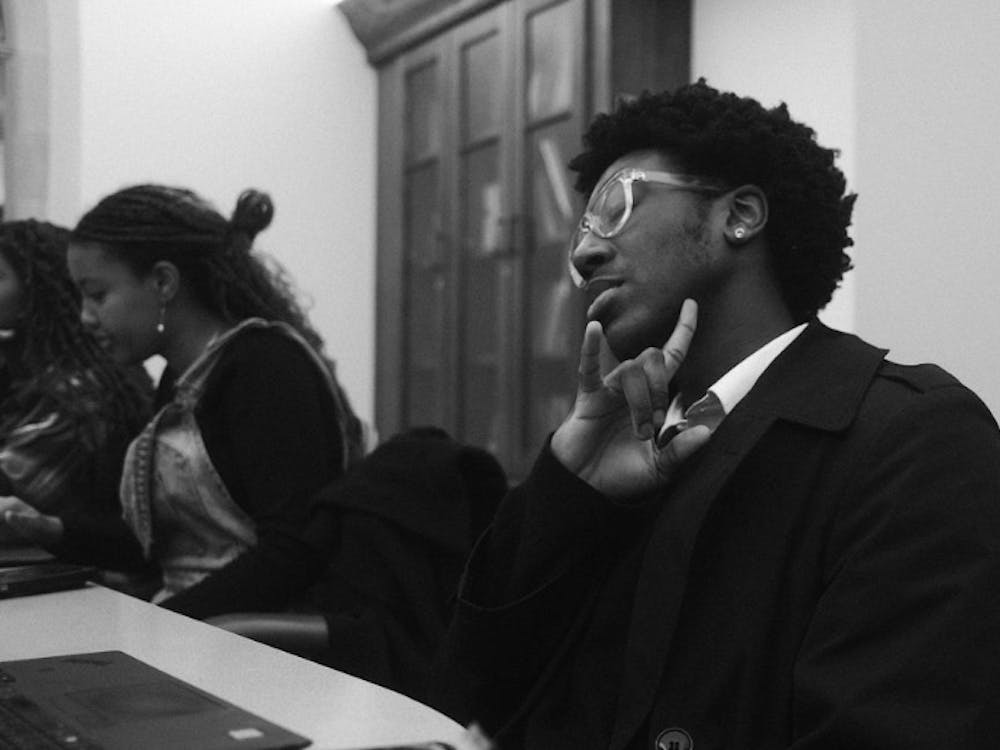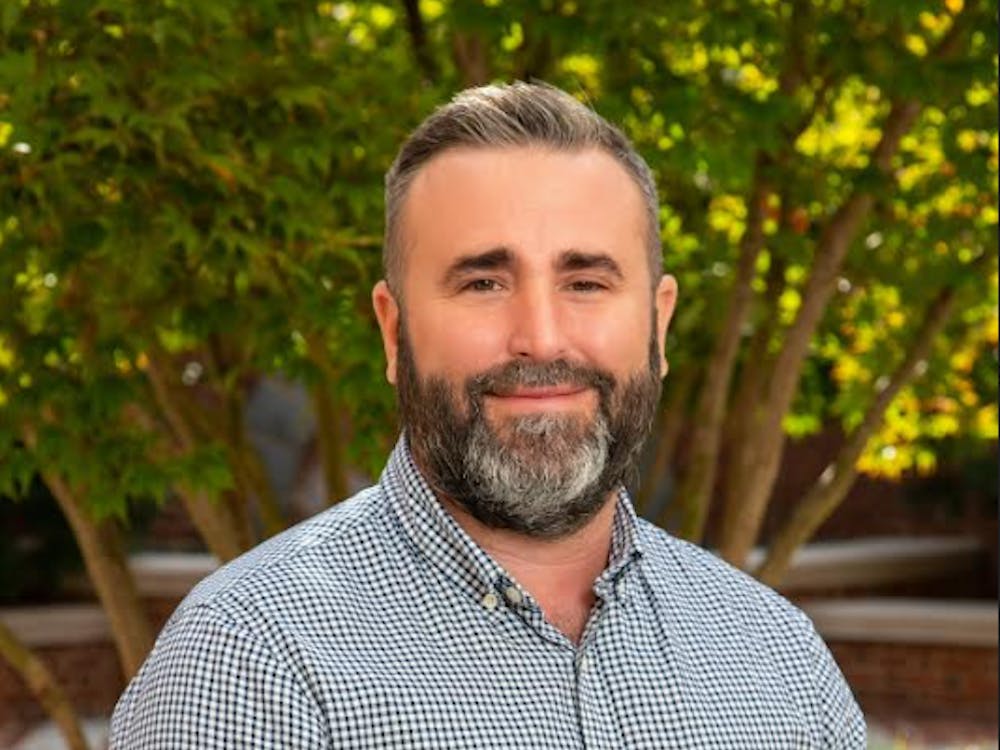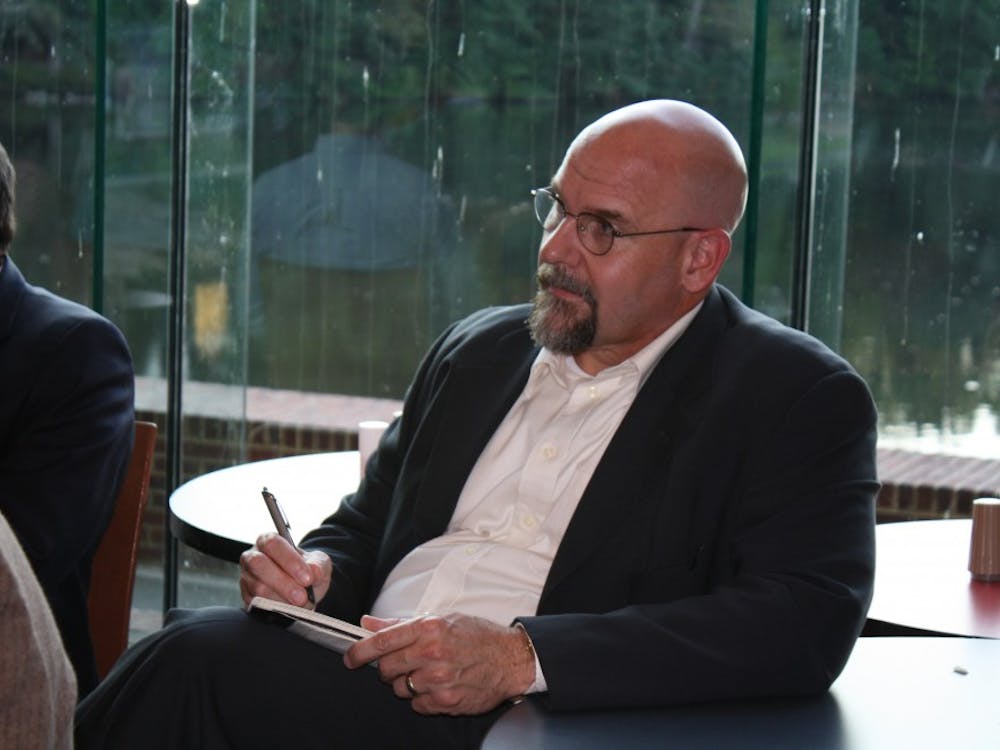This Valentine's Day, many students at the University of Richmond will not be with their significant others. The long-distance relationships created by partners going away to college can be strenuous, but many students are determined to make them work.
Upon starting school at Richmond, freshman Courtney Amelung of Baltimore, Md., decided to stay in a relationship with her boyfriend, Ben Ross, who attends the University of Maryland. The couple has been dating for 15 months and thought that they would be close enough to see each other often and make the relationship work, Amelung said.
The couple saw each other a few times last semester, and they talk online and text message each other every day. They have busy schedules that differ, but try to keep in touch during free time, Amelung said. Amelung is a new member of Pi Beta Phi, so Ross is coming for her sorority social the night after Valentine's Day.
"For both of us, especially me, [Valentine's Day] isn't a big deal," Amelung said. "Obviously, I like to be with him, but since I'll see him the next day, it's not a big deal."
Sophomore Josh Flynn has also maintained a long-distance relationship with his girlfriend, Marissa Behringer, who attends Michigan State University. Flynn, who is from Maine, and Behringer, from Michigan , met on a United Way Spring Break trip to Louisiana. They kept in touch after the trip, and after Flynn persuaded Behringer to come to one of his fraternity's formals, they began dating and have now been together for nine months.
Behringer visited last week for the couple's anniversary, and the two send each other packages on random occasions and have been together for Christmas and birthdays. Both admitted that there have been ups and downs in the relationship, but they try to see each other once every month. "There have been bumpy patches," Behringer said.
Flynn added: "It is especially frustrating when we cannot talk face to face."
Some Richmond students even live in different countries than their significant others. Anna McCarthy, from England, is a student at the University of Edinburgh, but is studying at Richmond this year. Her boyfriend of one year and four months, graduated from Edinburgh in June and now lives outside of London.
"[After he graduated] I knew he wouldn't be around," McCarthy said, so the two were already used to being apart.
McCarthy said she and her boyfriend did not see the distance as a big problem. They talk on Skype and e-mail each other, she said. Although McCarthy said maintaining the relationship has been tough,her boyfriend has visited Richmond, and she went home for Christmas. Going abroad is a requirement for McCarthy's program at Edinburgh, so both knew she would be leaving.
"We knew what we were getting into," she said. The couple does not normally celebrate Valentine's Day, McCarthy said, but it is an excuse to send each other packages, so they will. McCarthy will return home in May after not seeing her boyfriend for five months.
Senior Lillie Colombo is another Richmond student with a boyfriend in England. Colombo is dating Sam Slee from London, who studied abroad at Richmond last year. The two met through international friends and have been dating since July. Colombo was in England for six weeks last summer and will be there for a week during Spring Break this year, and Slee visited Richmond three weeks during the winter, she said.
Enjoy what you're reading?
Signup for our newsletter
Colombo explained that the couple takes their relationship step by step. They see each other every break, and each time they reevaluate their relationship to make sure it is still working for both.
"I'm going there for Spring Break, and after that trip we'll reevaluate again," she said. The two stay in touch through e-mail, instant messages and phone calls, Colombo said. The distance is frustrating, she said, because conversations sometimes die out on the phone, whereas when people are together they don't necessarily need to talk non-stop. Colombo does not see Valentine's Day as anything special and thinks the couple will just overlook it.
Peter LeViness, the director of Richmond's Counseling and Psychological Services, said long-distance relationships are "a challenge and a true test of devotion," and they are one of the major reasons students come to CAPS. "If a couple can stay together through a long distance relationship, it is a pretty strong confirmation [of their commitment]," he said.
LeViness estimated that more than half of long distance relationships do not work out. A main reason for this is jealousy, he said. If one partner hears that the other is going out, they may envision potential rivals. The partners may also have a different definition of their relationship and if they are allowed to see other people, he said.
Sometimes it is hard for partners to "read the writing on the wall," LeViness said. One partner could be saying they want out of the relationship, but the other is trying to hold on. When people are hanging on to their relationship but going out with others, they are losing respect for their partner, he said.
LeViness said long-distance relationships could sometimes preoccupy students because they worry about what their partner is doing. If things are not going well, one partner may feel they have to go see the other, and sometimes people put their lives on hold while waiting for the other person to call.
"There is a tension between putting effort into a relationship and being invested in the social scene here," he said. Some people even consider transferring schools to be with their partners, which is usually not a good idea, he said, because if the relationship does not work out, the person might have nothing left there.
Kerry Fankhauser, the Westhampton College associate dean for Programming and Leadership Development, agreed with LeViness.
"It is always possible to maintain anything," she said. "But the majority [of long-distance relationships] are not."
Fankhauser has met with many students whose long-distance relationships are not working out, and a lot of this might come during the first semester or year of college, she said. Sometimes, students find themselves buier than they thought they would be, and both may mutually begin growing apart -- an occurrence that is not unhealthy, Fankhauser said.
Fankhauser said she saw women who miss out on college life because they're afraid of losing their relationships, but if the relationship is strong enough, students should be able to have the full college experience without compromising it, she said.
"It should not mean having to give up college experience," she said. Relationships in which a partner is too obsessive and controlling to let the other enjoy his or her college life are unhealthy, she said.
LeViness said the best way for couples to maintain long-distance relationships was to stay involved in each others' worlds and be straightforward with one another.
"When you go to visit, meet [your significant other's] new friends," he said.
Said Fankhauser: "The key tenants for all relationships are determination and commitment. Just having two people that are both equally committed and determined to make it work -- that's the only way it works"
Support independent student media
You can make a tax-deductible donation by clicking the button below, which takes you to our secure PayPal account. The page is set up to receive contributions in whatever amount you designate. We look forward to using the money we raise to further our mission of providing honest and accurate information to students, faculty, staff, alumni and others in the general public.
Donate Now


